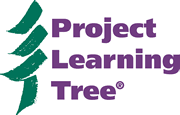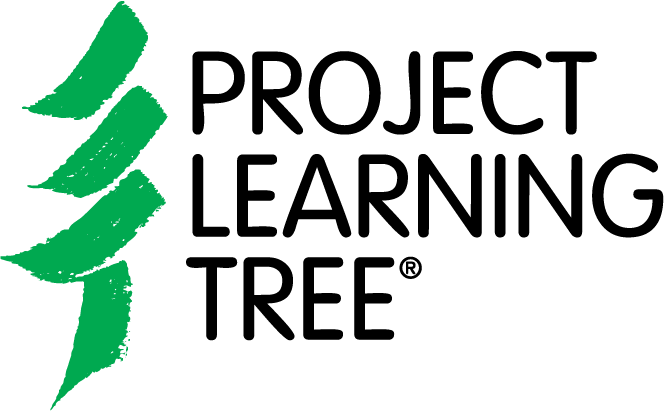February 2, 2024
Despite facing marginalization, Black Americans have made significant, but often overlooked contributions to environmentalism. This Black History Month, we want to recognize this legacy, from historical hidden figures, some highlighted in our guide, Black Faces in Green Spaces: The Journeys of Black Professionals in Green Careers, to modern environmental leaders. Their work lays the foundation for a more diverse and inclusive future in these fields.
Legacy of Pioneers
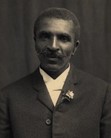 George Washington Carver: Biomimicry and Crop Rotation
George Washington Carver: Biomimicry and Crop Rotation
In the late 19th and early 20th centuries, George Washington Carver emerged as a trailblazer in environmental science. Carver’s groundbreaking work in crop rotation revolutionized resource conservation. His understanding of nature’s interconnectedness, expressed through biomimicry principles, emphasized the importance of considering long-term consequences in any action. Carver’s legacy extends beyond his innovations; it is a testament to the importance of sustainable agriculture and resource management practices.
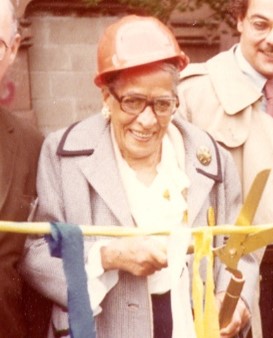 Hattie Carthan: Urban Environmental Justice
Hattie Carthan: Urban Environmental Justice
During the 1930s-70s, Hattie Carthan, a community organizer in Brooklyn, became a trailblazer in urban environmental justice. Her efforts focused on planting trees, establishing community gardens, and combating pollution in Brooklyn’s Bedford-Stuyvesant neighborhood. Carthan’s work led to improved sanitation, air quality, and increased green spaces, showcasing the transformative power of community-led environmental initiatives.
Photo donated by Bernice Green to the Brooklyn Public Library. Photographer unknown
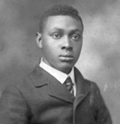
Ralph E. Brock: First African-American Forester
Ralph E. Brock, the first African-American forester, graduated in 1906 from the Pennsylvania State Forest Academy. His pioneering work with the U.S. Forest Service and West Virginia Conservation Commission involved groundbreaking research on managing eastern hardwood forests. Brock’s legacy paved the way for future generations of Black foresters and conservationists. © Penn State Mont Alto Library Archives
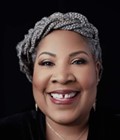
Melody Mobley: Breaking Barriers in Forestry
In 1986, Melody Mobley shattered barriers by becoming the first Black female professional forester hired by the U.S. Forest Service. Mobley’s journey extended to earning a Ph.D. in silviculture, making her an inspirational leader advocating for diversity in natural resource fields. Her achievements highlight the importance of breaking gender and racial barriers to create a more inclusive and equitable environmental sector. © Photo by Kirth Bobb
Contemporary Leaders
Carolyn Finney, PhD: Bridging Identity and Environmentalism
Carolyn Finney, a storyteller, author of Black Faces, White Spaces: Reimagining the Relationship of African Americans to the Great Outdoors, and a cultural geographer, works to develop greater cultural competency within environmental organizations. Her efforts challenge media representations of difference and aim to increase awareness of how privilege influences environmental discourse. By emphasizing the importance of diverse perspectives, Finney contributes to a more inclusive environmental movement.
View this post on Instagram
Georgia Silvera Seamans: Urban Forestry Advocate
As the founder of Local Nature Lab and a member of #BlackBotanistsWeek, Georgia Silvera Seamans designs urban ecology programs for New Yorkers of all ages, emphasizing the importance of city trees. Seamans’ work showcases the vital role urban forestry plays in creating sustainable and resilient cities, challenging the traditional perception of environmentalism as a solely rural concern.
Alexis Nikole Nelson: Foraging Advocate
TikTok | Instagram | YouTube | X
Known as the “Black Forager,” Alexis Nikole Nelson gained prominence for her social media presence highlighting foraging finds and sustainable cooking techniques. Her engaging videos on TikTok and Instagram showcase her encyclopedic knowledge of foraging and contribute to a deeper understanding of the indigenous roots of foraging in America. Nelson’s work promotes a connection between people and the land while advocating for sustainable practices in food sourcing.
View this post on Instagram
Dr. Beverly Wright: Champion of Environmental Justice
Dr. Beverly Wright is an environmental justice scholar and advocate who has dedicated her career to addressing environmental harm and health inequities. She is the founder of the Deep South Center for Environmental Justice. Through her work, Wright highlights the disproportionate impact of environmental issues on marginalized communities and advocates for policies that prioritize justice and equity.
Dr. Ayana Elizabeth Johnson: Environmental Justice Scholar
A marine biologist and policy expert, Dr. Ayana Elizabeth Johnson co-founded The All We Can Save Project and the nonprofit Urban Ocean Lab. Through her podcast “How to Save a Planet,” she asks the big questions about climate change, emphasizing the need for action. Johnson’s multidisciplinary approach bridges the gap between science, policy, and activism, advocating for comprehensive solutions to environmental challenges.
View this post on Instagram
Black In Environment: Contributing to the Visibility of Black Environmentalists
Instagram | YouTube | X | Facebook
“Black in Environment,” a nonprofit with a mission to build community for Black people in environmental spaces. Their work aims to counter the false narrative that Black people do not care about the environment by highlighting the multigenerational presence of Black individuals in the environmental movement. Through scholarship, activism, and engagement, this organization contributes to a more inclusive and representative environmental sector.
View this post on Instagram
Created by Project Learning Tree, the Sustainable Forestry Initiative, and Minorities in Agriculture, Natural Resources and Related Sciences, Black Faces in Green Spaces: The Journeys of Black Professionals in Green Careers guide is designed for middle and high school students, pre-professional youth, parents, and natural resource professionals looking to increase diversity within the natural resources professions.
During Black History Month and beyond, we aim to amplify diverse voices and perspectives in the environmental space.
